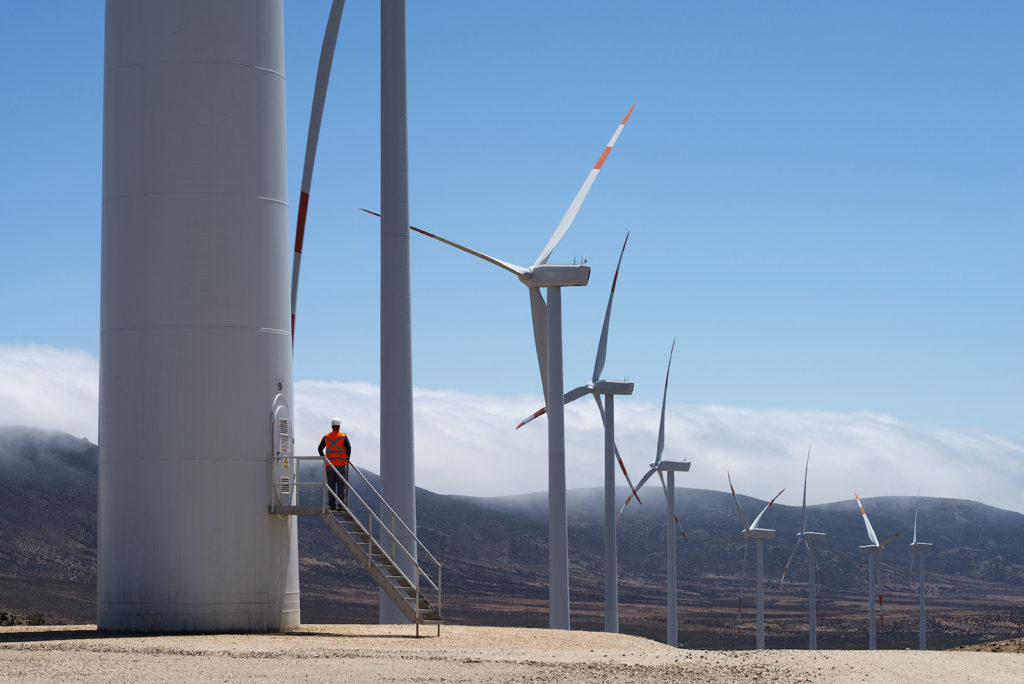The South American country is implementing new policies to transform investment into a tool to make its economy more sustainable.
In defiance of the global economic crisis, Chile is accelerating its steps towards a more sustainable economy, using foreign investment as a tool for reaching its targets.
The country has made a commitment to clean energy and caring for the planet, promoting renewable energy production and venturing into new clean energy sources such as green hydrogen. They are also encouraging recycling and implementing public policies to reduce the use of single-use plastics. Alongside the State, the private sector – in particular foreign companies – has taken a leading role in facing these new challenges.
Chile is currently developing an ambitious decarbonization plan, whose goal is for 70% of its electricity generation matrix to be made up of renewable energy by 2030. The target has not been set at random: this type of electricity has undergone significant development in the country in recent years. In 2011, Chile had an installed capacity of non-conventional renewables of 540 MW, and a problematic dependency on imported fossil fuels; the figure is now 11 times higher, and non-conventional renewables already make up 58% of the National Electric System.
According to Bloomberg’s Climatescope ranking, Chile sits in second place among the emerging economies with the greatest investment potential in clean energy, and foreign companies have identified an opportunity. The energy sector currently leads the portfolio of InvestChile, Chile’s Foreign Investment Promotion Agency, with projects worth more than US$9 billion in different stages of development.
THE ENERGY FUTURE
Green hydrogen, which has been described by many as “the energy of the future”, offers a new opportunity for Chile. The country aims to produce the cheapest green hydrogen on the planet by 2030, to be among the top three exporters by 2040, and have 5 Gigawatts (GW) of electrolysis capacity under development by 2025. This panorama has attracted companies like France’s Engie, Germany’s Siemens, Italy’s Enel, and Spain’s Acciona and Enagás, who are already developing green hydrogen projects in Chile.
The government has promised that the development of the hydrogen industry will be coherent with its social and environmental surroundings, incorporating best practices and dialogue. The industry will thus be developed in harmony with its environment, ensuring in particular the responsible use of water alongside nearby communities and activities.

Sustainability is being incorporated into all of Chile’s different sectors. Even industries such as large-scale mining – an important international stakeholder to help enable the transition of the global economy towards carbon neutrality, and which is highly relevant for foreign investment – is massively incorporating seawater to replace the use of continental water in its processes (from 2% in 2010 to 30% in 2020; the sector’s target is for 90% of the water used in Chilean mining to be seawater or reused water by 2025). The industry is also incorporating renewable energy; 50% of the electrical energy used by large-scale mining comes from renewable sources, and some companies have achieved 100%. The sectoral target is 90% by 2030.
RECYCLING AND CIRCULAR ECONOMY
In terms of recycling, one of the goals is to reduce the generation of waste and promote its reuse, recycling and other types of recovery. This will be achieved through the Extended Producer Responsibility Law (REP Law), whose implementation has been a joint effort between the public and private sectors.

InvestChile is promoting the REP Law as an investment opportunity for foreign companies. The agency is working with companies that are committed to the circular economy, supporting recycling projects for used mining vehicle tires and aquaculture nets, and recovering waste from the fishing industry, among other initiatives.
But the country’s commitment does not stop there. In March this year, the government enacted the Climate Change Law following almost a year of discussion. With this milestone, Chile became the first developing country to have a regulation of this type. Furthermore, the government has just announced the creation of a special tax incentive for investment projects with a multiplier and green effect, consisting of a US$500 million tax credit fund for sustainable projects that have a high multiplier effect. In the eyes of Chile, foreign investment can contribute to the construction of a greener future. And they are already working on it.

